7 start with I start with I
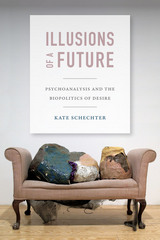
In the process, Schechter shows how deeply imbricated the analyst-patient relationship is in this effort. Since the mid-twentieth century, the "real" relationship between analyst and patient is no longer the unremarked background of analysis but its very site. Psychoanalysts seek to validate the centrality of this relationship with theory and, through codified "standards," to claim it as a privileged technique. It has become the means by which psychoanalysts, in seeking to protect their disciplinary autonomy, have unwittingly bound themselves to a neoliberal discourse of regulation.
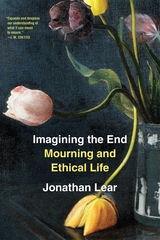
A Washington Post Notable Work of Nonfiction
A Chronicle of Higher Education Best Scholarly Book
“A deeply insightful and thought-enriching work by one of the most original philosophers writing today. Imagining the End is acutely aware of the danger we stand in of finding ourselves on an uninhabitable planet. But Lear is also aware of how the consciousness of impending loss can bring out the illumination inherent in meaningful life, often occluded in day-to-day living.”
–Charles Taylor, author of A Secular Age
“Lear is a lovely and subtle writer, someone who has a rare capacity to introduce ways of seeing and interrogating the world that dignify our confusion and pain while also opening up new possibilities for moving forward.”–Daniel Oppenheimer, Washington Post
The range of Jonathan Lear’s abilities—as a philosopher and psychoanalyst who draws from ancient and modern thought, personal history, and everyday experience to help us think about how we can flourish in a world of flux and finitude—is on full display in Imagining the End. Lear masterfully explores how we respond to loss, crisis, and hope, considering our bewilderment in the face of planetary catastrophe. He examines the role of the humanities in expanding our imaginative and emotional repertoire.
How might we live, he asks, when we realize just how vulnerable the cultures to which we traditionally turn for solace might be? He addresses how mourning can help us thrive, the role of moral exemplars in shaping our sense of the good, and the place of gratitude in human life. Along the way, he touches on figures as diverse as Aristotle, Abraham Lincoln, Sigmund Freud, and the British royals Harry and Meghan. Written with Lear’s characteristic elegance, philosophical depth, and psychological perceptiveness, Imagining the End is a powerful meditation on persistence in an age of turbulence and anxiety.
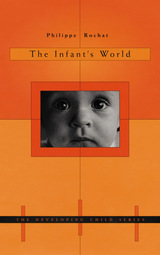
What do infants know? What do they feel, and how do they come to understand what’s happening around them? How do they begin to construe others as persons with feelings and intentions? These questions inspire this remarkable new look at the infant’s world. The short answer? Infants are much more sophisticated perceivers, feelers, and thinkers of their world than we may think.
In this lively book, Philippe Rochat makes a case for an ecological approach to human development. Looking at the ecological niche infants occupy, he describes how infants develop capabilities and conceptual understanding in relation to three interconnected domains: the self, objects, and other people. Drawing on the great body of contemporary “competent infant” research, Rochat offers a thoughtful overview of many current, controversial topics, from neonatal imitation to early numeracy, to the development of self-awareness. In a provocative conclusion, he describes infancy as a series of key transitions—so dramatic that they are sometimes called “revolutions”—and maps out the processes that impel development.
Offering a unifying theoretical vision of the vast research of recent years, The Infant’s World is an inspiring introduction to the liveliest area of modern psychology.
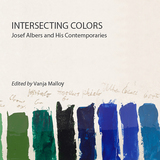
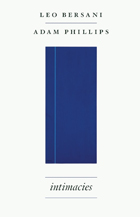
In pursuit of new forms of intimacy they take up a range of concerns across a variety of contexts. To test the hypothesis that the essence of the analytic exchange is intimate talk without sex, they compare Patrice Leconte’s film about an accountant mistaken for a psychoanalyst, Intimate Strangers, with Henry James’s classic novella The Beast in the Jungle. A discussion of the radical practice of barebacking—unprotected anal sex between gay men—delineates an intimacy that rejects the personal. Even serial killer Jeffrey Dahmer and the Bush administration’s war on terror enter the scene as the conversation turns to the way aggression thrills and gratifies the ego. Finally, in a reading of Socrates’ theory of love from Plato’s Phaedrus, Bersani and Phillips call for a new form of intimacy which they term “impersonal narcissism”: a divestiture of the ego and a recognition of one’s non-psychological potential self in others. This revolutionary way of relating to the world, they contend, could lead to a new human freedom by mitigating the horrifying violence we blithely accept as part of human nature.
Charmingly persuasive and daringly provocative, Intimacies is a rare opportunity to listen in on two brilliant thinkers as they explore new ways of thinking about the human psyche.
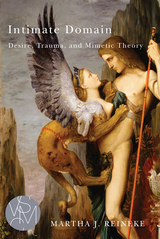

Integrating the Islamic faith with modern psychotherapy is at the forefront of the spiritually integrated psychotherapy movement. To bring this work to wider attention and to promote its continuation, Dr. Carrie York Al-Karam has brought together the present volume of nine essays, each of which is written by a Muslim clinician who practices Islamically integrated psychotherapy (IIP)—a modern approach that unites the teachings, principles, and interventions of the faith with Western therapeutic approaches.
As delineated in the Introduction, IIP has emerged from a variety of domains including the psychology of religion and spirituality, multicultural psychology and counseling, transpersonal psychology, Muslim Mental Health, and Islamic Psychology. The individual chapters then describe a variety of ways IIP is practiced by Muslim clinicians in their service provision with Muslim clients.
The contributors discuss a wide range of topics, such as how Islam can be viewed as a system for psychological wellbeing, or a “science of the soul”; what marital counseling can look like from an Islamically-integrated perspective; Prophet Mohammed as a psycho-spiritual exemplar in a new approach called The HEART Method; the use of Quranic stories in family therapy; as well as using Islamic teachings when working with Muslim children and adolescents.
A description of the various approaches is supplemented with discussions of their theoretical underpinnings as well as research-based recommendations for advancing clinical application. What emerges is a vital resource for Muslim and non-Muslim clinicians alike as well as the lay Muslim reader wanting to know more about how the Islamic faith and psychotherapy are engaging with each other in a modern clinical context.
READERS
Browse our collection.
PUBLISHERS
See BiblioVault's publisher services.
STUDENT SERVICES
Files for college accessibility offices.
UChicago Accessibility Resources
home | accessibility | search | about | contact us
BiblioVault ® 2001 - 2024
The University of Chicago Press









